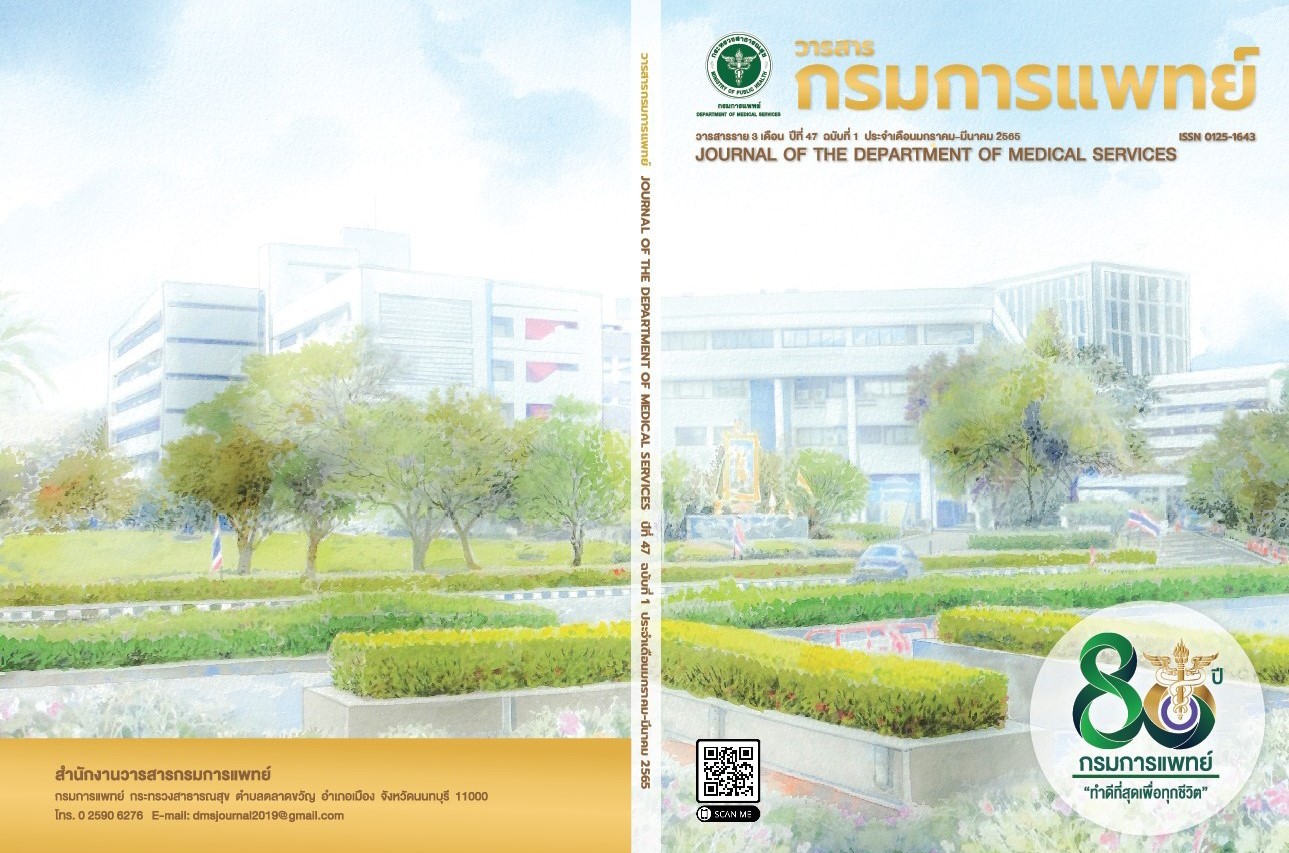What challenges do Thai general practitioners and family physicians confront when discussing advance care planning with palliative care patients and families?:A qualitative study
Keywords:
advance care plan, advance care plan, palliative care, challenges of physicianAbstract
Background: The end-of-life decisions are not solely made based on patient’s autonomy. This procedure creates challenges for Thai primary care physicians to discuss an advance care plan with patients and families.Objective: To understand the challenges for physicians in discussing advance care plan at the end of life. method: In-depth interviews were conducted with coding and thematic analysis performed by three independent investigators.Results: Twenty primary care physicians (10 male, 10 female) were interviewed.Nineteen physicians recognized the importance of an advance care plan as a "life map" “incorporation into ID card" and "early plan in advance”. Physicians faced 3 major challenges physician’s own factors, patients and families’ factors, and the health care system. General physicians reported a lack of knowledge in symptom palliation and misconception of palliative care is as inactive care. Family physicians had to set up a comprehensive palliative care system on their own and were confronted with the conspiracy of silence in the family. Lastly, the Thai health care system predominated with the disease-oriented model of care, patient overload, and difficult coordinating care with specialists. Despite having legal support for advance directives, it is still in early-stage with lack of family physicians.Conclusion: Thai primary physicians face three major challenges in advance care planning including physicians’ own factors, patients’ and families’ factors and the disease-oriented health care system.
References
Sudore RL, Lum HD, You JJ, Hanson LC, Meier DE, Pantilat SZ, et al. Defining Advance Care Planning for Adults: A Consensus Definition From a Multidisciplinary Delphi Panel. J Pain Symptom Manage. 2017;53(5):821-32.e1.
WHO definition of palliative care [Internet]. 2019. Available from: https://www.who.int/cancer/palliative/definition/en/.
Johnson SB, Butow PN, Bell ML, Detering K, Clayton JM, Silvester W, et al. A randomised controlled trial of an advance care planning intervention for patients with incurable cancer. British journal of cancer. 2018;119(10):1182-90.
Keating NL, Landrum MB, Rogers SO, Jr., Baum SK, Virnig BA, Huskamp HA, et al. Physician factors associated with discussions about end-of-life care. Cancer. 2010;116(4):998-1006.
Risk J, Mohammadi L, Rhee J, Walters L, Ward PR. Barriers, enablers and initiatives for uptake of advance care planning in general practice: a systematic review and critical interpretive synthesis. BMJ Open. 2019;9(9):e030275.
Enck RE. Advance directives: Burden or benefit? American Journal of Hospice and Palliative Medicine®. 2003;20(5):329-30.
Bernard C, Tan A, Slaven M, Elston D, Heyland D, Howard M. Exploring patient-reported barriers to advance care planning in family practice. BMC Family Practice. 2020;21.
Hong M, Yi EH, Johnson KJ, Adamek ME. Facilitators and Barriers for Advance Care Planning Among Ethnic and Racial Minorities in the U.S.: A Systematic Review of the Current Literature. J Immigr Minor Health. 2018;20(5):1277-87.
Johnson S, Butow P, Kerridge I, Tattersall M. Advance care planning for cancer patients: a systematic review of perceptions and experiences of patients, families, and healthcare providers. Psychooncology. 2016;25(4):362-86.
Downloads
Published
How to Cite
Issue
Section
License
Copyright (c) 2022 Department of Medical Services, Ministry of Public Health

This work is licensed under a Creative Commons Attribution-NonCommercial-NoDerivatives 4.0 International License.
บทความที่ได้รับการตีพิมพ์เป็นลิขสิทธิ์ของกรมการแพทย์ กระทรวงสาธารณสุข
ข้อความและข้อคิดเห็นต่างๆ เป็นของผู้เขียนบทความ ไม่ใช่ความเห็นของกองบรรณาธิการหรือของวารสารกรมการแพทย์



